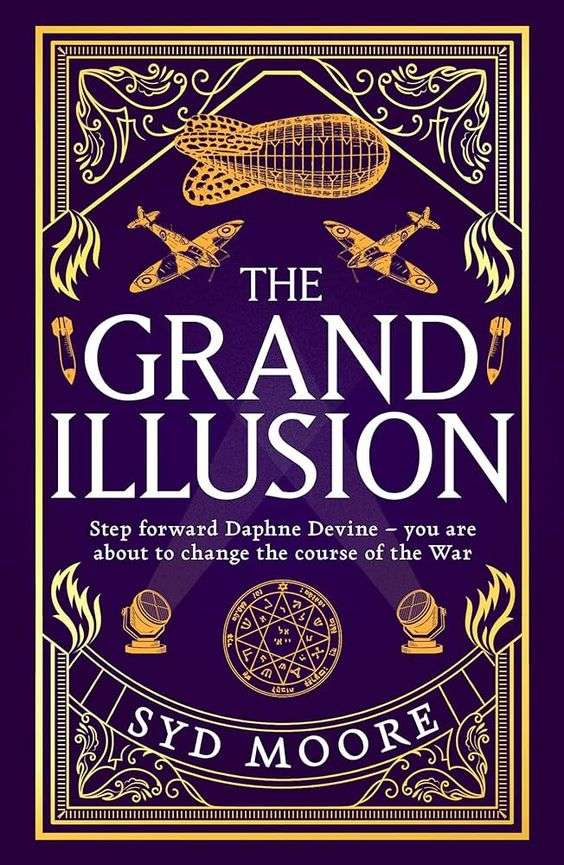
THE GRAND ILLUSION by Syd Moore
Magpie Books p/b £16.99
Reviewed by Nigel Robert Wilson
This a delightfully constructed tale that puts flesh on a legend left over from the Second World War. A story was put about in occult circles that the planned Nazi invasion of Britain in the summer of 1940 was frustrated by a magical ritual conducted by practitioners of the art who enticed Hitler to invade the East rather than Britain. Syd Moore has taken that idea and worked it up into a beautiful story designed around the character of Daphne Devine, who is a stage magician’s assistant.
The research behind the novel is sound. This reviewer is fortunate to have had a close relative who worked for Brigadier, later Major-General Gubbins, who was Winston Churchill’s master of dirty tricks. The language and the changing values expressed by Moore through the character of Devine are accurate to the period. She even drags the novelist Denis Wheatley into the cast list. At the time, he worked for military intelligence and, post-war, was the most public promoter of the occult legend in question. His occult novels are classics of the genre but are very dated.
Furthermore, references used in the novel to describe Nazi ideology are authentic. A Nazi film is shown to a group of trainees. What Moore describes is obviously Leni Riefenstahl’s astonishing propaganda film `Triumph of The Will’. Moore has done her homework and is to be congratulated on the authenticity of both time and place.
As a magician’s assistant, Daphne Devine is practised in the art of illusion. As the tale develops through the development of camouflage and the deployment of distractions on the battlefield, Devine finds herself effectively being groomed to participate in what she thinks is a grand illusion designed to intimidate Nazi occultists. Gradually, it becomes apparent to her that for some of the people with whom she is working, this was no illusion whatsoever; they are genuine practitioners of the occult arts.
This progress is greatly eased by some of the others with whom she is also working; her old boss, the stage magician Jonty Trevelyan, and Jack, the very attractive Canadian engineer, are there. Yes, there is a bit of a love story, too, but there were many of those among the young in those frightening times. You lived for the day because tomorrow could prove dreadful, and for Daphne, it did. An unfortunate encounter with Nazi agents left her fighting for both her life and liberty, but she escaped their clutches with the help of the Women’s Timber Corps.
The date of the ritual is brought forward to Lammastide to become a monumental act of theatre witnessed by those same Nazi agents who could be relied upon to report back to their occult-obsessed masters. Syd Moore ably demonstrates that she sees magic as a subjective activity which, if followed sensibly, transcends the practitioner whilst making an entertaining spectacle.
With regard to the legend, the names of three practitioners, Aleister Crowley, Gerald Gardiner and Dion Fortune, are often proposed. Wheatley loathed Crowley and would never have promoted any deed of his. Gardiner would have been happy to accept the credit without the input, whereas Dion Fortune, who may be Miss Sabine in this tale, did aid the nation at war.
A very good story which has been well-researched.
